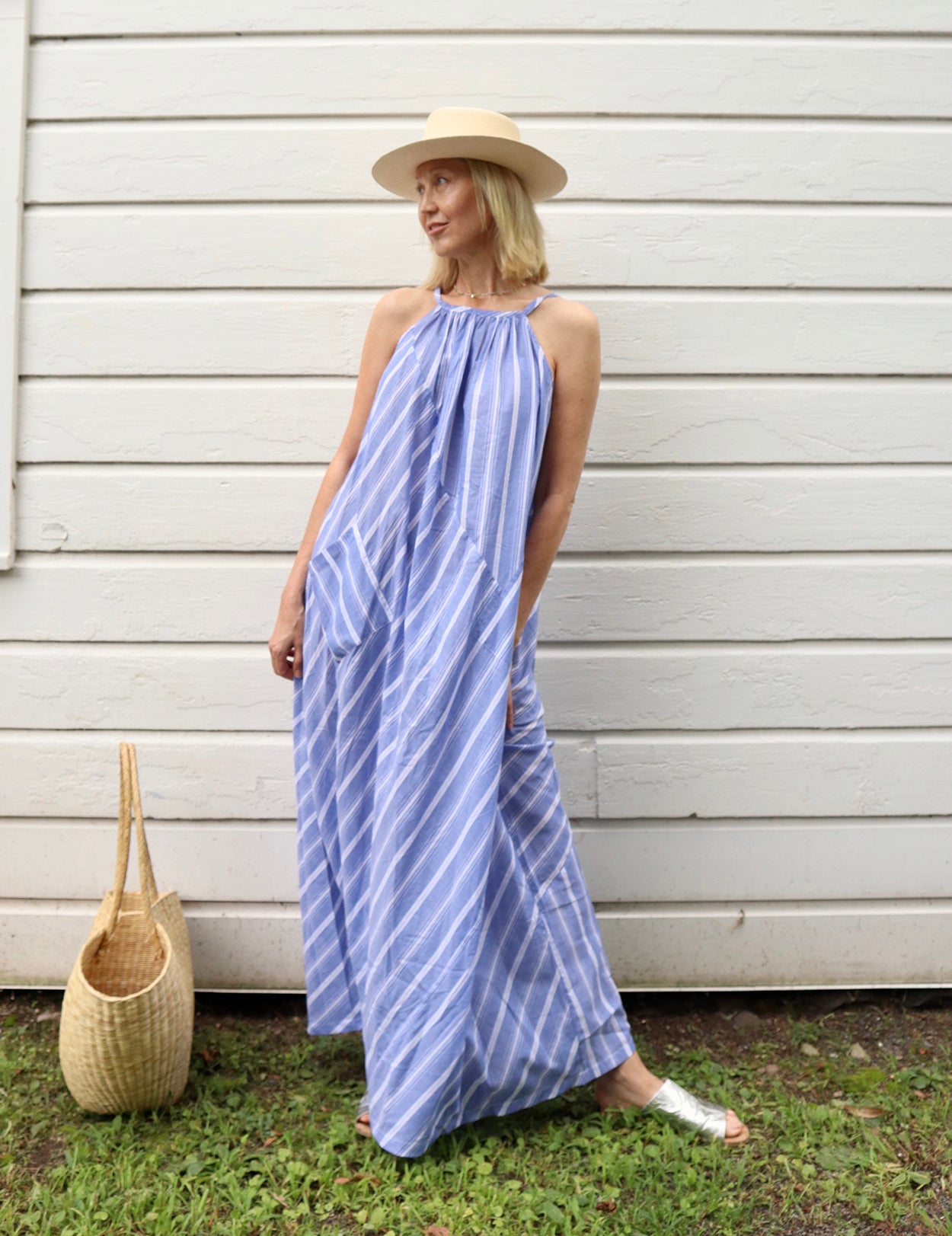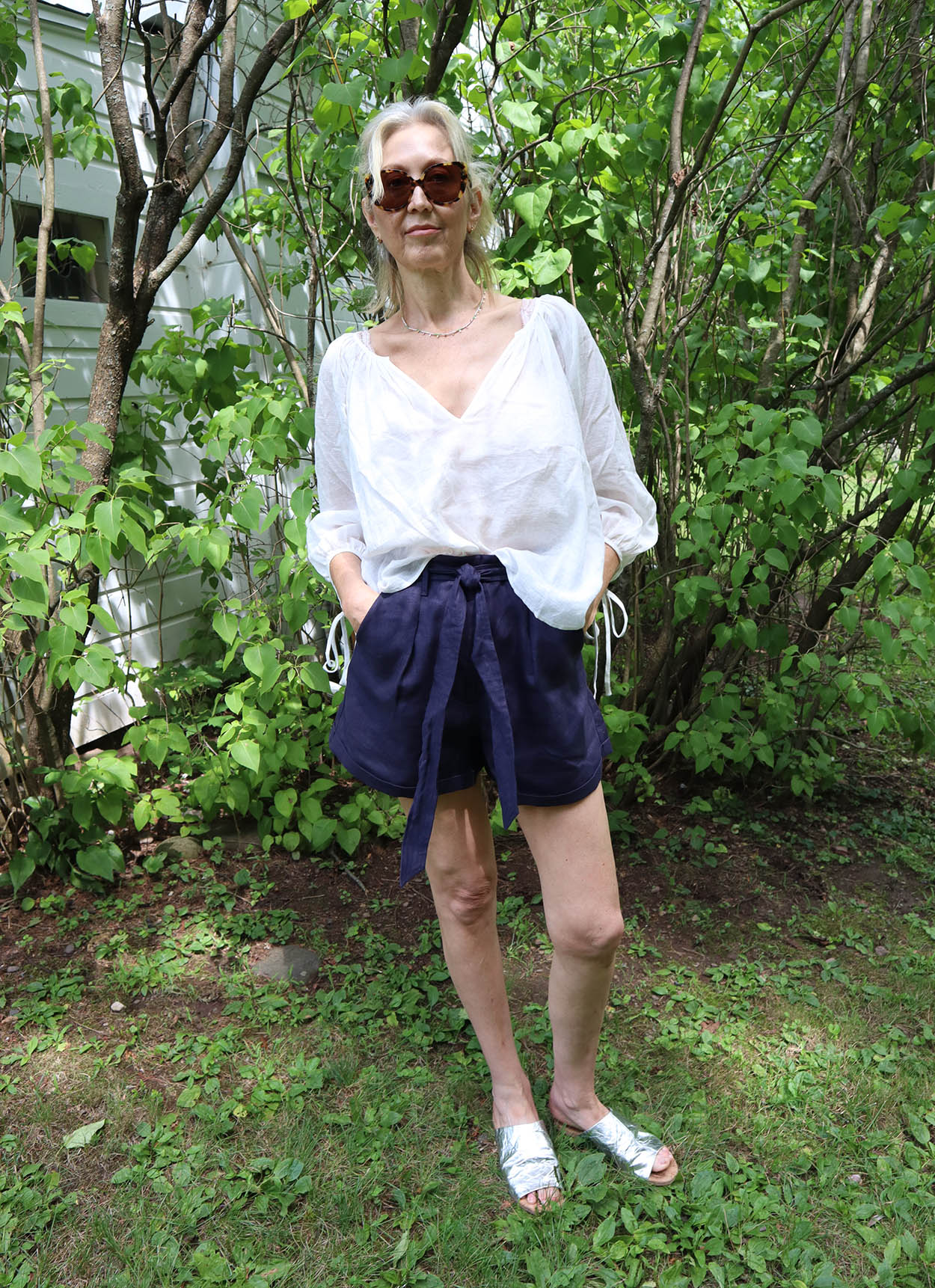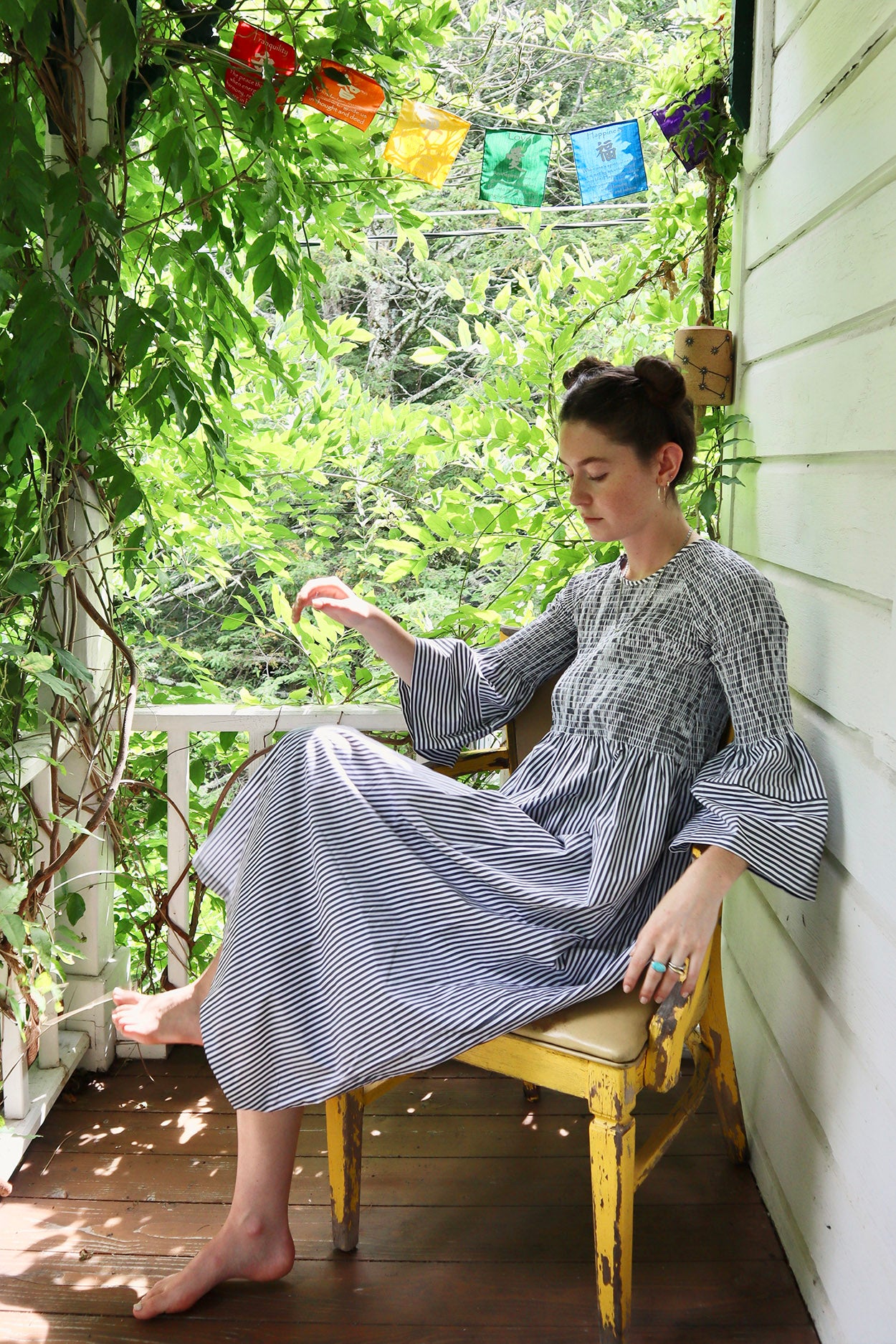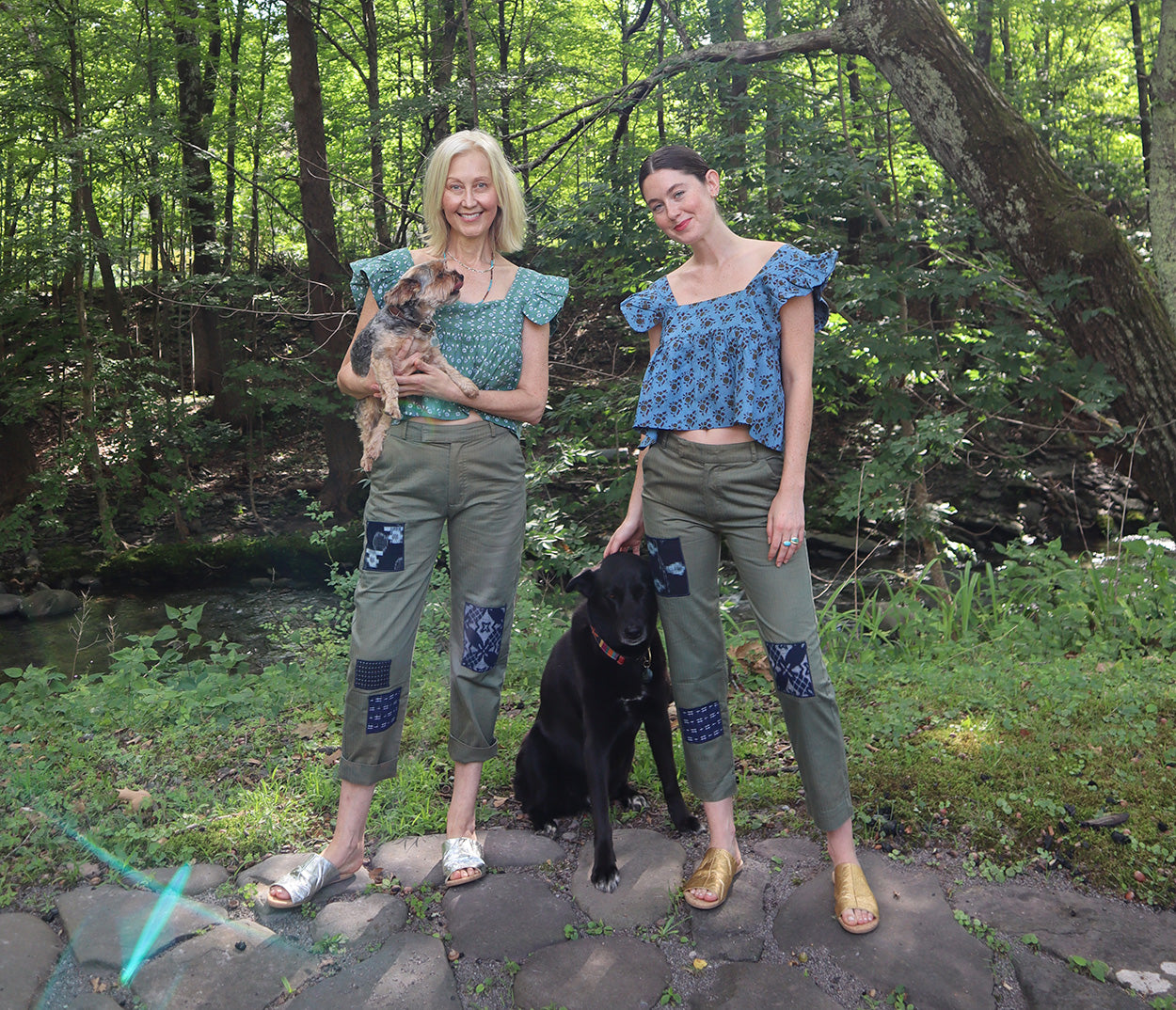Recently, we caught up with our friends, Janet MacGillivray and Madeleine MacGillivray Wallace, on our respective couches as best anyone can these days through the waves of WiFi; waves that sometimes roar but more often fizzle our sound connection. Still, we leaned in closer to our screens and did not let the occasional Zoom disruption distract from our talk on their lives as environmental activists and their work on behalf of indigenous communities through their organization, Seeding Sovereignty. We were also inspired by a personal story of cancer recovery that even pixels could not obscure: the picture of a mother and daughter leaning on one another.
M.PATMOS: Good to speak with you both. Where do we find you quarantining these days?
Janet: So, we’re both Brooklyn residents and we were there for the first couple of weeks but we actually have been quarantining, since late March, up in the Catskills region in a small home by a creek and surrounded by trees. I’ve been immune-compromised because I had gone through several years of cancer treatments and it was becoming apparent that I was going to have to quarantine in a place that was safe and also more conducive to healing, so we’ve been upstate.
M.PATMOS: It must be nice to have access to the fresh air — we’re a little jealous here in the city but, we get outside occasionally… You’ve in fact dedicated your career to protecting the environment, would you share with us some of that experience?
Janet: Sure, I’ve been a water lawyer for many years now with a focus on human health impacts and worked at a lot of the larger environmental organizations, children’s health organizations, and government agencies, including the Environmental Protection Agency. Once I realized that our current environmental system is actually designed to allow permissible levels of pollution, rather than considering the preciousness of our resources and protecting them proactively, I decided to look towards other systems of environmental protection such as indigenous, multigenerational stewardship of our lands, waters, and air. In 2016, I was asked to go to Standing Rock where I was an attorney for the Chief. That experience and the closure of that particular water protection camp lead many of us, under the guidance of Chief Arvol Looking Horse, to carry the spirit of Standing Rock to our own local communities. My relationships with the young people who had gathered and come together for the protection of the water against a fossil fuel pipeline, asked if I would continue working with them. And so, I established a small nonprofit called Seeding Sovereignty, which really is an honoring of the relationship with them, with the elders who have guided me, and for a new form of environmental protection that is not based on colonial expertise — it's more inviting, inclusive, and diverse because we really need to come to this moment together before we’re going to see any change.

M.PATMOS: And Madeleine, you are also an environmental activist. Were you inspired by your mom’s work in this field to study it yourself?
Madeleine: Yes, she took me to a lot of really enriching projects that she was able to work on and volunteer for — it was in no way glamorous but as a kid I was able to see a lot of these struggles from an environmental justice standpoint and it definitely gave me a very rich worldview as a child. When it came time to choose a major in college, I could have gone so many different ways and I had a very hard time choosing, but I realized something that I had the most life experience in was the environmental field. So, I focused on environmental policy and environmental science and I ended up writing my thesis on microplastic pollution. My mom has always nurtured a very independent personality in me — we’re very different, separate people but I realized that this is something that I naturally want to do and I have a really good example of someone who's been in that for a while in my mom.
M.PATMOS: We’ll have to pick your brain about microplastics one day. What school are you attending, by the way, and how far along are you?
Madeleine: I finished my undergrad at Barnard in 2018 and I’m starting grad school in Sustainability Management at Columbia this fall at the School of Professional Studies — it’s a Master of Science.
M.PATMOS: Very good!
Janet: I’m amazed at what stayed with her, you know, because growing up in Brooklyn, I was a single mom and my work by necessity carried me to some remote regions to learn firsthand from the communities that were being impacted by corporate fossil fuel extraction. And for me to travel with Madeleine and to show her the world from that perspective, to learn from communities that were, by many standards, incredibly poor but were so rich in resources from the natural environment — to sleep in the hammocks or in the tents that they would provide was very humbling. I think for a child to grow up having as an experience the realities of what it means to not have clean drinking water, or the realities of choking on the air really fostered this global compassion and a sense of opportunity to change the way that business is done — we don’t have the time to continue with business as usual, the planet can’t afford it.
M.PATMOS: Do you have any indigenous heritage? What was it about this culture that inspired you?
Janet: Yes, I have a lineage that’s Mvskoke, Mvskoke Creek. I was not in any way raised in that tradition but, there has always been a kinship with my ancestors and a sense of responsibility to learn different perspectives of indigenous land stewardship that are regenerative and reciprocal.

M.PATMOS: What are the main focuses right now during these challenging times for your organization?
Janet: Seeding Sovereignty always is a nimble response to what’s most pressing and we try to go where we’re invited to be of service. Currently, that is our COVID-mutual care response for tribal nations that are not able to meet the CDC minimum recommended thresholds — whether that is providing running water, PPE, healthy food and taking into consideration also those who are unhoused, those that are undocumented, and those that are struggling. COVID has shined a brighter light on social injustices, the lack of resources and the lack of response from agencies that are supposed to be responsible for these responses.
Madeleine: We have to recharge the computer, sorry…
M.PATMOS: Go ahead, go ahead!
Janet: Wealso have an ongoing focus on the 2020 presidential election and an effort to invite those who have traditionally not participated in what’s considered a colonial system of representation — to encourage those who are in key states that have higher populations of first time voters to participate and to exercise their right to have a voice in a system that’s not been fair to them. Through our ‘SHIFT’ program, we are finding campaigns that meet the needs of people where they are — for example we’re having a twelve hour online voter registration telethon for indigenous communities, we are really celebrating indigenous youth leadership and diversifying the representation of who speaks to what the key platform issues are that may not be considered by traditional party systems.
M.PATMOS: What are a few examples of those key issues?
Janet: For example, violence of the land is connected to violence to women. There’s a tremendous epidemic of missing indigenous women and girls which is in correlation with the extraction by fossil fuel companies and the camps of transient workers that go into communities and reservations to set up pipelines and build the infrastructure that will then extract oil. So, really fighting for support for the Violence Against Women Act, highlighting the need for reporting systems and protection of our relatives in these areas — this is definitely a frontline issue for many indigenous peoples. The environmental and fossil fuel issues are at the fore because of the extraction that takes place and the damage it's doing to the natural environments of many communities. We’re looking at the role of Big Agriculture in climate change and how, in many circumstances, there is a colonization of traditional lands by cattle ranchers and others that are going into these areas, putting massive footprints into pristine lands and taking millions of gallons of water per day that is not renewable — we have finite water resources. Animal agriculture contributes tremendously to climate change and impacts communities indefinitely by taking their lands, poisoning their waters and making people very sick.
M.PATMOS: What would an ideal agricultural system be in your opinion? What would you want to see?
Janet: There are planting ways that have successfully and, in balance with nature, produced enough food for communities. We’re at the point where our food production is for profit and not for health and we’ve really become disconnected from our relationship to the land and see the land as a vehicle to generate massive profits that benefit very few people. And so, it’s returning to local food production systems, farming with the seasons, and really trying to remove the link again between fossil fuels and the chemical industry with our land. There has always been a reciprocity in traditional planting by indigenous peoples and an awareness that the land can bear so much. By overburdening through a demand to extract the same crop and deplete the nutrients of the soil, ultimately it’s a race to a very unhealthy ecosystem. Patience and diversity — planting diversity, timing diversity, seed diversity— can regenerate the health of the soil. The balance needs to be restored; our food system is an industrial complex and we no longer have a personal relationship with it.

M.PATMOS: There is a lot of activism and interest around climate change — we’ve seen the mass marches and school walkouts. But how do we, in your opinion, translate that into actual movement in these areas? Is change solely made through legislation?
Janet: I mean, I think we definitely have to vote people out and vote other people in… Legislation is always going to be key but I think we’re in a moment now where the movement itself is in motion. We have seen during COVID, systems collapse — systems that we each rely on have not sustained many people. We can no longer deny who our essential workers are. We can no longer be blind to the fact that many people who work in industries that keep our cities running are not well cared for. We really have had a moment to pause and pay attention to our essential needs and who provides them. At the same time, recognizing that jobs are not as secure as we would hope — restaurants may not continue. I do believe that we have a collective moment of possibility to recognize one another, our reliance on one another, and our duty to uplift people that have been doing an incredible amount of the labor to keep our cities and towns supported. So, people coming together in marches, people coming together in solidarity for communities of color — all of that momentum hopefully that will lead us to November 3rd, electing other officials that yes will create policies and pass laws that will be mindful of the realities of all lives. It’s the diversification of activism and the invitation to everyone to participate and to not outsource their voices to organizations or to politicians. It’s a matter of stepping into your personal responsibility to take a stand for what you know is right.
M.PATMOS: What are ways people can get involved to help the work of Seeding Sovereignty?
Madeleine: If people want to help Seeding Sovereignty, if they have the ability, they can donate to our campaign. We’ve raised an incredible amount of funds for communities in need in the Navajo Nation and that involves giving elders meals, books for people to read, supplies like basic PPE. We have a huge mask drive that’s happening right now — actually FEMA reached out because they have a need for 69,000 masks for school children on different reservations. And so people who are sewing masks themselves are contacting us and we’re telling them where to send masks. We’re also getting brands that are donating thousands of masks at a time — they’re all coming to us and we’re packing them and shipping them — our kitchen is filled with boxes of masks.
Janet: M.PATMOS was one of the first that jumped in to help us with masks for the tribal nations, so we are incredibly grateful. These communities do not have WiFi, these children do not have computers and so their only option for an education is to show up — and showing up means going into their schools and around their teachers and going back home to their families, potentially carrying the coronavirus to their communities and to their elders. And so, we have been scrambling to donate and actually to produce 69,000 masks. Also, during this time, for those who are going on the front lines to support our relatives and the movement for Black Lives, it’s very important to know about digital security in social media, filming events and marches, and being mindful of people’s identities. We’re having digital security trainings available to people who want to sign up for them to learn more about how to be an ally and, if you do witness something, how to best use that as a form of support for court cases or for movements for justice. That’s another option that I think, in these times, is essential.

M.PATMOS: When you have a moment’s time from work, what are you doing to find comfort for yourselves?
Madeleine: In the time when we’re not sending masks, we’ve just been going on hikes and doing a lot of cooking and painting.
Janet: Yeah, we’re really enjoying being by a creek and being outside of the city. We’ve actually been lucky so, just slowing things down, being more connected to the seasons and also prioritizing how we spend our time, you know, who we make time for and how we connect with them. Our core group of friends is a great comfort I think. A friend of mine is a classical pianist who performs at Carnegie Hall and she’s been doing classical concerts from her living room by Zoom and that’s sort of fun. People are getting very creative with how they’re spending their time.
M.PATMOS: Janet, at the beginning of our talk you mentioned your ongoing battle with cancer. If it is something you feel comfortable speaking about, would you share anything about your recovery experience? There’s always a chance it will give solace to another woman or family going through a similar struggle.
Janet: Well, I have had cancer twice and so this is my second time. Madeleine has been my primary caretaker throughout the whole experience and it’s challenging when roles of mother and daughter are somewhat reversed. And yet, there’s a beautiful respect that exists for her strength and so I have a lot of pride in how she’s stepped in to help me. Breast cancer is very common — it's too common — and there are many connections to food and stress and environment and genetics. I’m certainly not alone in my diagnosis, everyone’s experience is unique to them, but I have been referring to cancer as a guru during this time because there’ve been many lessons that I think I did not learn before my diagnosis — one of which is how to receive care and how to receive support from other people. I think I’ve learned who my true chosen family is and I also have a tremendous respect and thanks for the medical community that has stewarded me through a complicated recovery. I’ve met some incredible women. I’ve been a source of, I hope, comfort. Because I chose to be more public this time, I was able to actually share my experience online that led to others asking me to talk to their newly diagnosed family members or friends. And we wove together a new sisterhood of women that were going through breast cancer who were at different phases of treatment and diagnosis and recovery. And by extension, Madeleine has become a resource, as a daughter of a cancer patient, to other daughters who can see a living example of a child who has experienced this because there are no resources for children — even at major institutions like Memorial Sloan Kettering there aren’t support groups for the daughters of women with breast cancer.
Madeleine: Can you believe that? It’s so crazy.
Janet: Cancer taught me to be braver in terms of asking for help, or looking at the choices that I make in terms of my lifestyle, stress or relationships. And actually, the organization grew more during my cancer treatment, my friend circle grew stronger along with my sense of gratitude. Those are changes that will continue. So, I actually am quite at peace with the diagnosis, as difficult as it was, because it has reoriented my life in a way that needed to be changed. Being vegan was really important during my treatment. A diet of healthy, plant-based foods really helped me to endure the marathon that this has been. And I hope to be a resource to others because too many will have to face this and I don’t want them to be alone.
M.PATMOS: Well, we really appreciate you sharing and thank you to you both.
Janet: Thank you. M.PATMOS is a wonderful example of a woman-owned business that is creating community. If all businesses were building communities of thoughtful people and uplifting others, I think we’d all be in a happier place.




















































